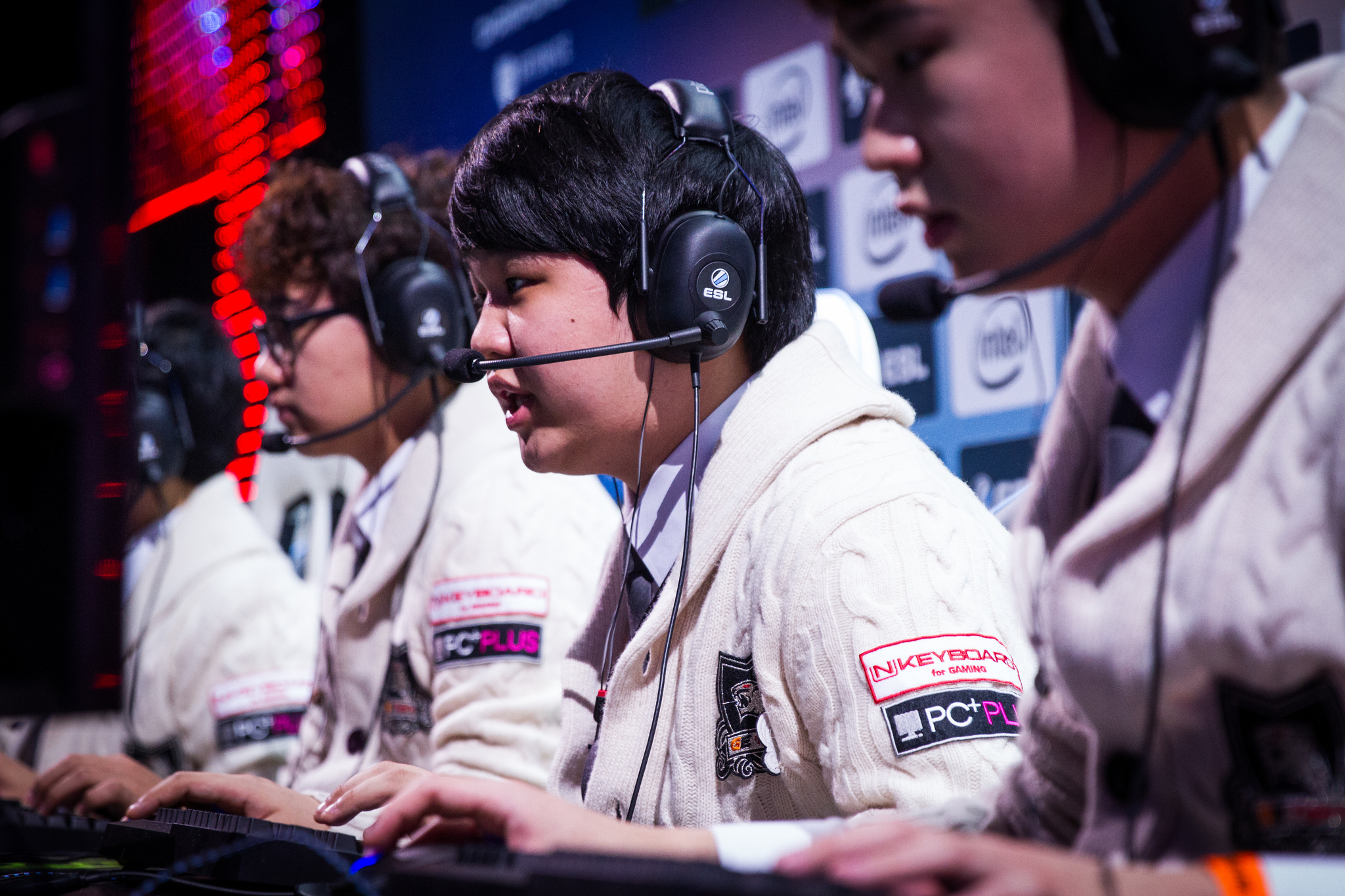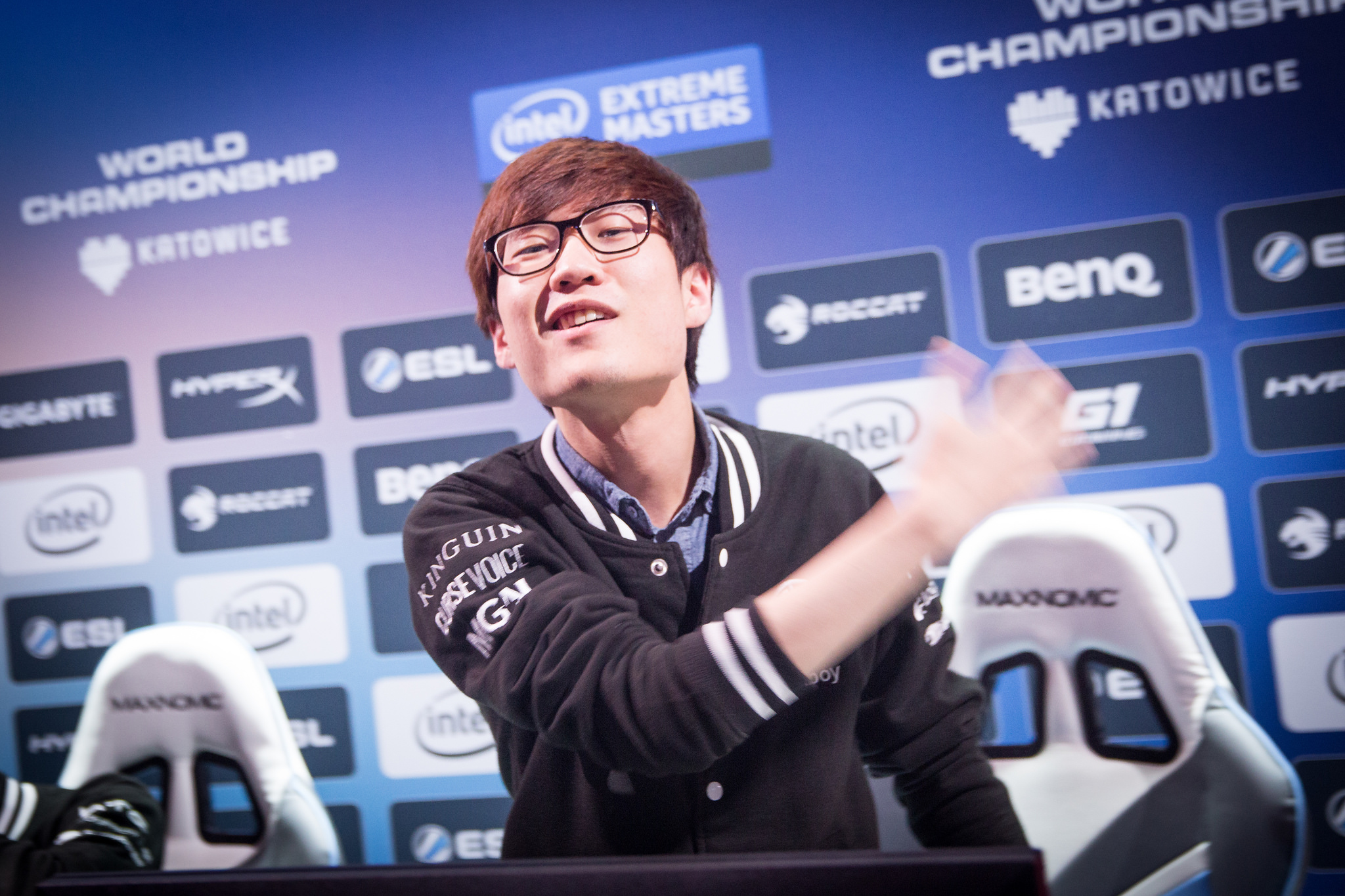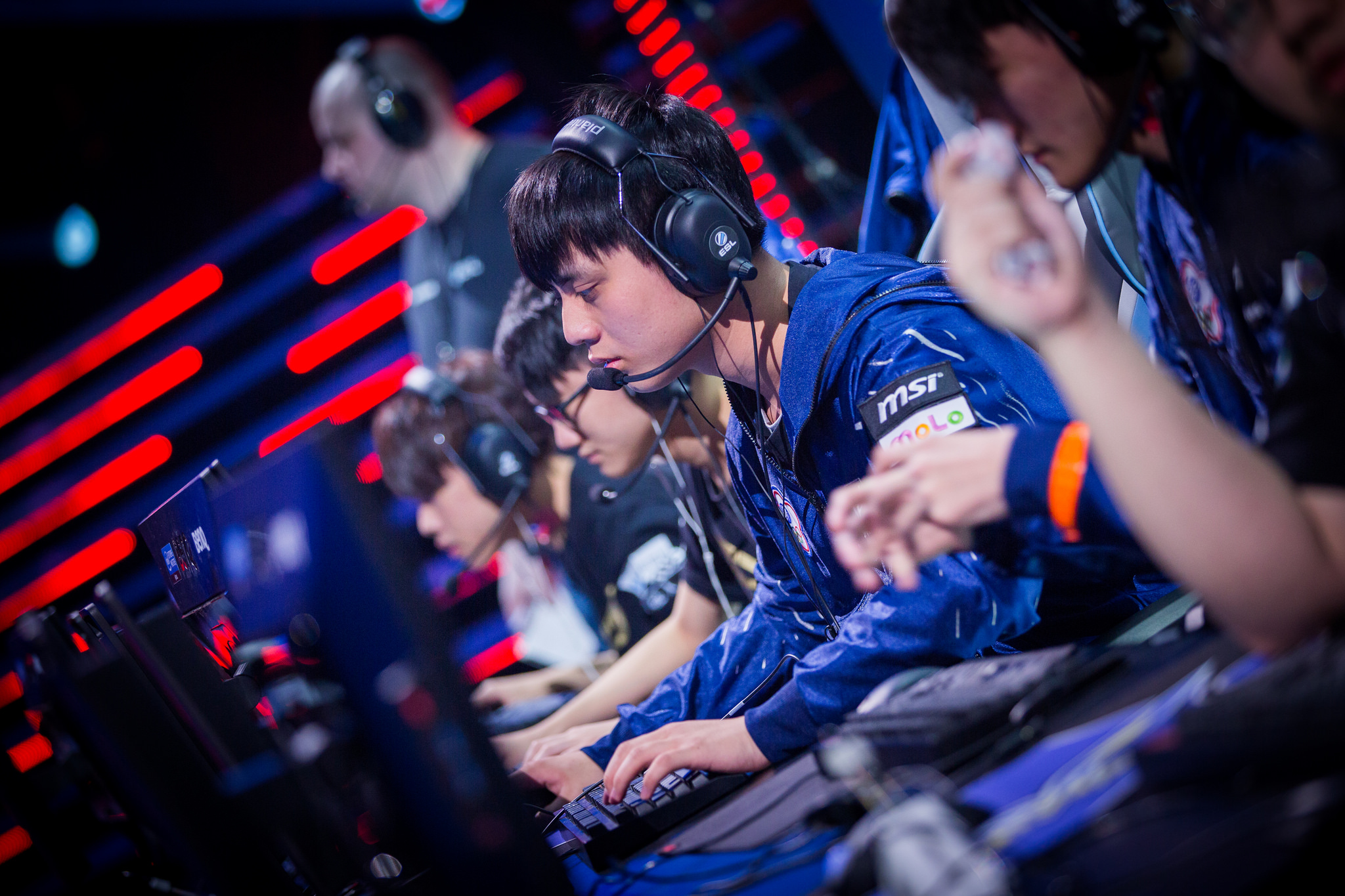League of Legends: Lessons learned from IEM Katowice

There's a lot to dislike about ESL's best-of-one group stages, as used in IEM Katowice—competition is often volatile, especially with lane pushers where there are balance disparities based on what side you start on or whether teams run into each other in the first two or three minutes of game-time. It could've been worse, sure, as the double elimination format means a team has to screw up twice before they're truly knocked out, and if you're that shaky on the international stage, you weren't set to win it anyhow.
But while the group format itself was unimpressive, the results coming out of it was amazing. Upsets all around: white was black, up was down, Korean teams actually lost, and everybody was chowing down on apple pie in the end. It was easily the most exciting League of Legends tournament in a while—and though the sub-optimal group stage format puts a lot of its results into doubt, there were lessons aplenty to be learned from its outcomes.
Even gods bleed
CJ Entus getting knocked out: fair. Among the OGN regulars, it was widely recognized that their standings in their home circuit was a bit deceptive: while they weren't Samsung-level bad (and imagine saying "Samsung-level bad" just a few months ago), their early-spring performance was now overshadowed by an extremely rough latter-season patch. Calling them "tepid" would be doing them a favor, with the only decent performers being Coco and—to the consternation of everybody that's ragged on him last year (including me)—Space.
Yes, we're talking about the team with Madlife and Shy, the superstars of Season 2. No, neither of them are anywhere near at an acceptable level of play at the moment. CJ Entus getting knocked out of groups wasn't entirely expected (KT Rolster Bullets and SKT T1 K were both in dire straits when they swept their IEM tournaments), but if there was going to be any team to disappoint South Korea it was going to be them.
GE Tigers, though. What? Really? They haven't dropped a set against anybody in South Korea! They were supposed to yawn and steamroll over China's Team WE, who had replaced their mid laner and support literally days before the tournament! Instead, for the first time since 2012, an international tournament with Korean teams failed to have a Korean finals.
Suddenly, blood is in the water, and everybody's a shark. The great exodus of 2014's paid off, alright—it might not necessarily make China more competitive (Team WE was wrecked by North America's Team Solomid 3-0, and haven't made as much of a splash back home in the LPL), but it sure as hell has made Korea weaker. Where once even their lower-tier teams made everybody else look laughable,
Has South Korea's esports golden age run its course?
Keep up to date with the most important stories and the best deals, as picked by the PC Gamer team.
TSM! TSM! TSM!
Given the nature of international competition, the death knells of one region's supremacy usually means another coming up in its place—and North America has been waiting with bated breath for years for their turn. They lost their grasp of it wwaaaaaayyy back in Season One, when the European metagame that made permanent the distinct roles of League of Legends ended up with Fnatic and Against All Authority in an all-European finals, found themselves in shockingly short measure in Season Two, when the Taipei Assassins demonstrated the value of a truly professionalized training environment, and the next two years were basically KeSPA flexing their muscles.
Each and every time, in each and every season, Team Solomid was North America's best hopes and most popular team. Sure, their innate American-ness might be a tad questionable—the team now consists of two Danes, a Korean, a Canadian and a Dyrus—but with their victory at IEM Katowice, the organization's finally cemented a long-pursued global leadership.
Coach Locodoco's done a continent proud. The biggest criticism against TSM, prior to Katowice, was a notable binary in their play patterns: either Bjergsen went off, or the team suffered. But while they're still centralized on his success, their dependency was notably lessened: Santorin and Lustboy, in particular, had astounding performances, promising a tactical breadth that will prove all the more vital in future tournaments.

Western whiplash
Of course, it's one thing to say that TSM's a major Worlds contender now. It's another thing to say that their success is reflective of the western circuits.
Case in point: the poor European teams. SK might be struggling, but they're still among the top three teams of the EU LCS right now. And Gambit, while comparatively low in the standings, is the opposite case: their ranking belies what has been solid and increasingly respected performance over the last month. Yet in neither case was success found on the international stage, as both China and Taiwan caught them by surprise, knocking them straight out of the groups stage.
At least SK had an excuse: after soundly thrashing the Yoe Flash Wolves, with Forgiven demonstrating his usual muscular prowess down in bot lane, they weren't expecting the rematch to be quite so vigorous. Unfortunately, while the GE Tigers might not have gotten past the 11th-place Chinese team, they did run over the European hope just fine—and that was all the inspiration that the Wolves needed to tear out their hamstrings.
It's even worse for Cloud 9, though—at least SK Gaming got a win at all. But the once-brightest of the recent generation of North American teams have definitely lost a lot of their luster. Balls and Hai have been struggling valiantly to stay abreast of their peers back home, but seemed like outright liabilities on the most recent world stage—facing the Tigers was a harsh lesson in their shortcomings, and losing to the Wolves was salt in the wound. And if Cloud 9 was doing so badly, the rest of the North American scene sitting under them from 4th and onward have reason for concern: they might be the biggest fish at home, but the rest of the world makes them look like mere minnows.

Ray of hope
I'm going to fanboy a bit, and you're just going to have to deal with it: the Taiwanese scene has waited two very, very long years for this moment. We've had to deal with the idiosyncrasies of Southeast Asian esports for years, sit through mind-numbingly inevitable and soullessly rote wins against the Bangkok Titans and Singapore's part-timer teams for months upon endless months, bear with the retirement of our best and brightest players, and a steadily growing sense that our one victory back in 2012 was just a fleeting dream.
We were beginning to believe the derision coming from our western peers: that we were irrelevant, a has-been wildcard region, and that our seeds and tournament presence would've been better-given to a Chinese team across the Strait, or up north to Korea. LMS? Yoe Flash who? Didn't the Taipei Assassins fail to win a single game back in Season 4 Worlds, where even Brazil managed an upset?
Wolves. Yoe Flash Wolves. Know that name. Without the yoke of Southeast Asia's "ten hours a week is a good scrim schedule, right?," with four good teams and three improving rookie teams to practice off (we try to pretend Dream or Reality doesn't exist), it turns out that Taiwanese teams are actually dangerous! Dangerous enough to catch Europe's best off-guard. Dangerous enough to flip a game against North America's top three.
Dangerous enough to be TSM's only real challenge throughout Katowice.
Steak. Karsa. Maple. NL. Swordart. My boys'll be there for the Mid-Season Invitational, you can bloody well count on it. Sleep on them at your peril.
We will have our day again.

